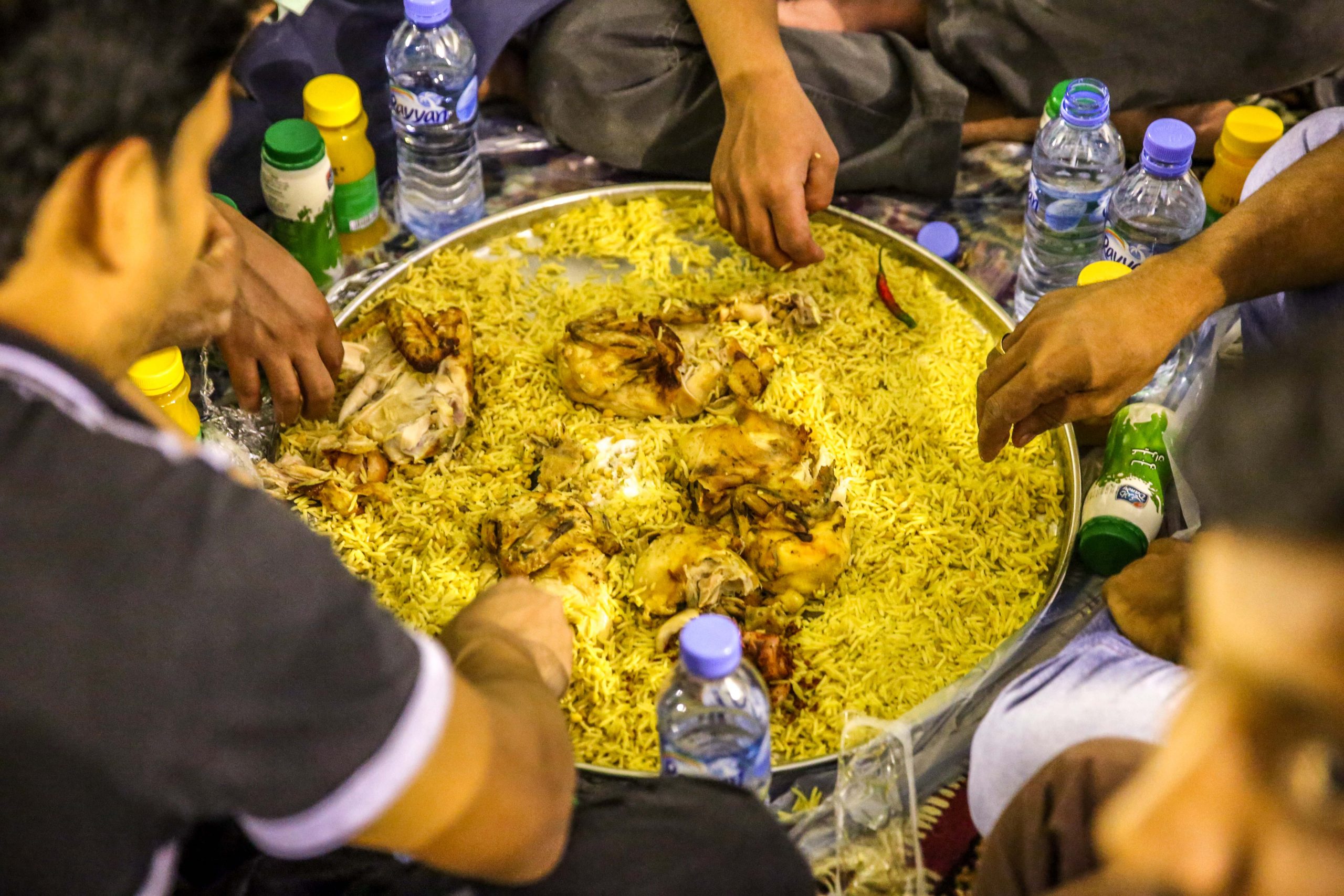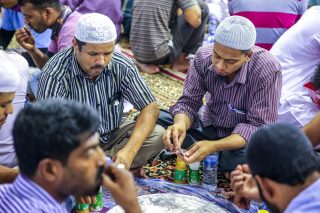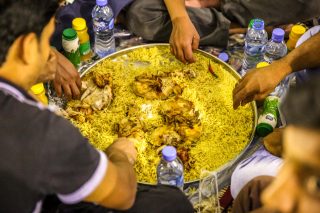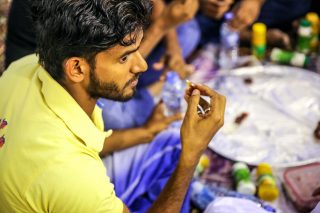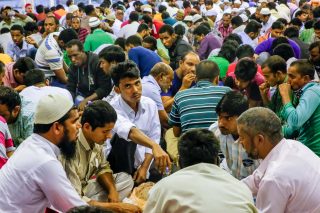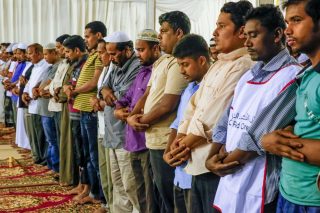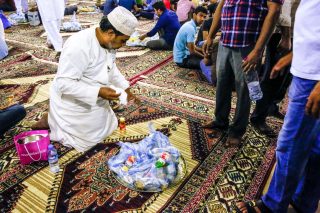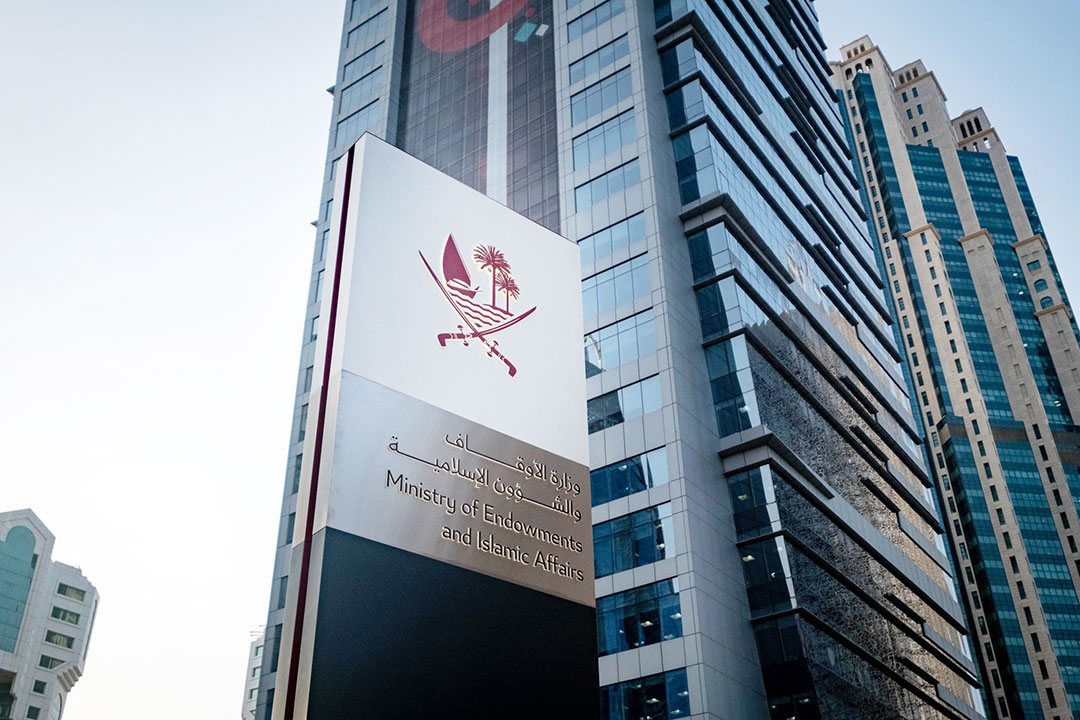All photos by Chantelle D’mello
More than 3,000 low-income expats gathered at one of the largest charity iftar tents in Qatar last night to mark the third day of Ramadan.
The air-conditioned tent, located behind the Mövenpick hotel, is sponsored by the Qatar Red Crescent (QRC), and is one of many such venues set up around the country by charities this month to provide free meals to the growing blue-collar worker population.
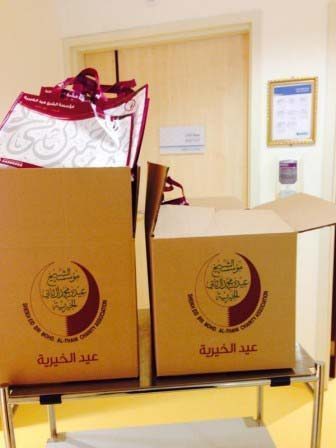
This year, QRC said it has increased its reach by setting up three additional tents in the Industrial Area, Al Wakra and Al Khor. At capacity, the tents feed some 6,000 people daily, more than double last year’s 2,800 people a day.
Such initiatives are not uncommon around Doha, as charities and individual donors often step up acts of kindness during the holy month of Ramadan.
Qatar Charity, Eid Charity, Reach Out to Asia (ROTA) and the Sheikh Thani Bin Abdullah Foundation for Humanitarian Services (RAF) are some of the other organizations involved in humanitarian projects over the course of Ramadan.
Speaking to Doha News, a QRC volunteer spoke about the spirit of the fasting month and the rationale behind the tents:
“It’s a way for us to observe the month in solidarity. Most men here don’t have their families or their wives here to prepare meals for them on a daily basis. We do this to take care of them, and to let them know that they’re not alone. It’s a communal experience, and one that’s open to everyone – male or female, Muslim or non-Muslim, Arab or non-Arab.”

Several Mowasalat drivers attending last night’s dinner echoed the sentiment, saying:
“This is a very good initiative because we are all together. It’s hard to be away from family during Ramadan and Eid, and with our busy schedules, we find little time to head back home to cook or spend money to eat Iftar outside. We are grateful for this because it saves us money, and because it allows us to meet and talk to other people from our countries and from other parts of the world.”
Growing demand
Since last May, Qatar’s population has grown by some 200,000 people, according to government figures.
Many of the new residents are thought to be construction workers hired to work on major projects ahead of the 2022 World Cup, and word about the free meals tends to spread fast, tent organizers have said.

Speaking to Doha News, Nayef Bin Faisal Al Mohannadi, QRC’s director of administrative affairs and human resources, explained:
“It increases every year. When we first started this project nine years ago, we had just one tent, but every year we’ve been growing to keep up with the demand. We’ve set aside QR 2,175,000 this year for food projects inside Qatar including the tents, and other food distribution initiatives that we have ongoing at the hospitals, the Grand Mosque and the Industrial Area.”
While QRC said it has had no trouble accommodating growing demand, a source at Qatar Charity told the Peninsula that some attendees had to be turned away this year due to limited seating capacities.
The meals
This year, Ramadan meals are alternating between large trays of chicken and rice and meat and rice shared between four to six people. Each attendee is also provided with a packet of dates, water, juice and laban.

QRC said that each day, dozens of volunteers arrive from 3pm onwards to set up the tents, organize guests on prayer mats around the meal trays and ensure that the meal stations are cleaned after iftar.
Imams and lecturers deliver talks on health and religion before the call to prayer, and lead trivia competitions, handing out QRC merchandise.
If the tent is especially crowded, men sit up to six a tray, and more mats and trays of food are added.
“We don’t turn anyone away. We’re equipped to handle extra numbers, and, since we’ve been doing this for so many years, we can estimate how many people come. On Friday, for example, we have less guests, as most people are off and make food for themselves at their accommodations,” Mohannadi said.
To combat any food wastage, some charities have been moving away from serving meals in large trays. Qatar Charity, for example, provides each attendee a styrofoam-covered meal pack, in the hopes that leftover food will be take home and stored.

Other organizations not participating in the charity iftar tent projects also lend a helping hand to minimize leftover food.
The Sheikh Eid Charity Association offers a pickup service to collect leftover food from homes, hotels, restaurants and other venues where quantities of food sufficient for 10 or more people are remaining.
Meals are then distributed via mini-vans to workers living in Sinaeya, Abu Hamour and Shahaniya.
Thoughts?

